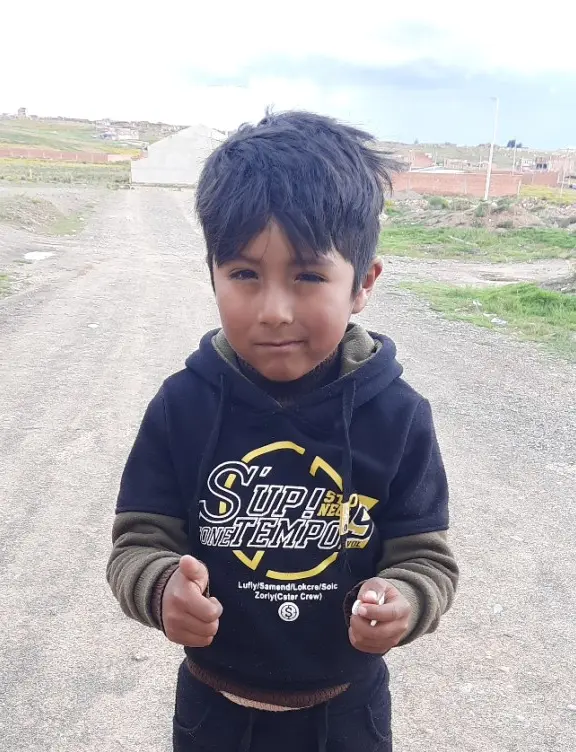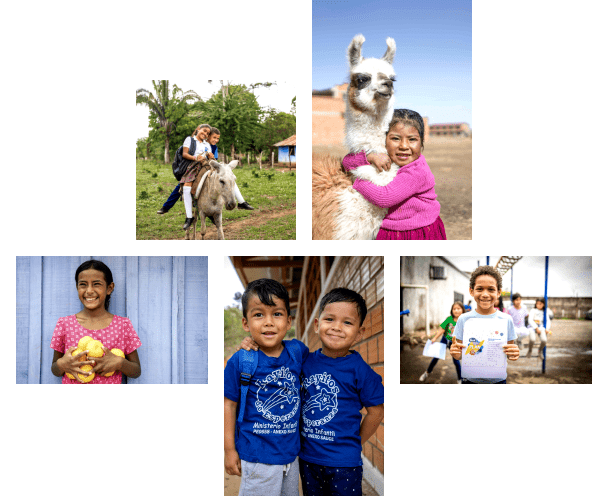
Gael Jesus
Bolivia is comprised of four geographic regions: the central plateau in the Andes Mountains, the Lake Titicaca region, the central region’s semitropical rain forests and the hot, humid lowlands of the east. Landlocked, Bolivia borders Chile, Peru, Argentina, Paraguay and Brazil. Bolivia has the largest natural gas reserve in South America. Still, it remains the least developed country on the continent. Half the population is made up of indigenous groups who speak Aymara and Quechua and are who are mired in poverty. Compassion works mainly among the indigenous highlanders who make beautiful hand-woven textiles from the wool of alpacas and llamas, animals that also provide milk, meat and transport. Corn and potatoes are staples of the indigenous diet. Virtually all Bolivians are Catholic. Once known as the cradle of the Inca Empire, Bolivia came under Spanish rule in 1535. Bolivia won independence in 1825. Until the end of the nineteenth century, there were many coups and short-lived constitutions. The period from 1952 to 1964 was marked by significant economic and social reforms and a new constitution was adopted in 1967; however, civil unrest continues to dominate Bolivia’s politics. Bolivia is a divided country. Its indigenous people are locked in a battle with its industry and political leaders to gain more economic independence.
With $43 a month, you can help a child in poverty by ensuring:
Regular medical check-ups
Adequate nutrition
Individual Mentorship
Educational support and skills development
The opportunity to receive words of love and support
An introduction to God's love
What you will receive through your sponsorship:
Letters
The letters you send and receive from your sponsored child will allow you to learn about their lives while offering them support and encouragement.
Pictures from your child
Observe how the child you sponsor is growing through photos shared on your Compassion account.
Updates and prayer requests
You will receive regular prayer requests for your sponsored child and information about local crises affecting them.
Consistently, we receive some of the highest possible ratings from charity evaluators and watchdogs
"There are so many kids whose lives can be reached and transformed, just like mine was"

Jonathan Almonte
Compassion Representative, Dominican Republic

